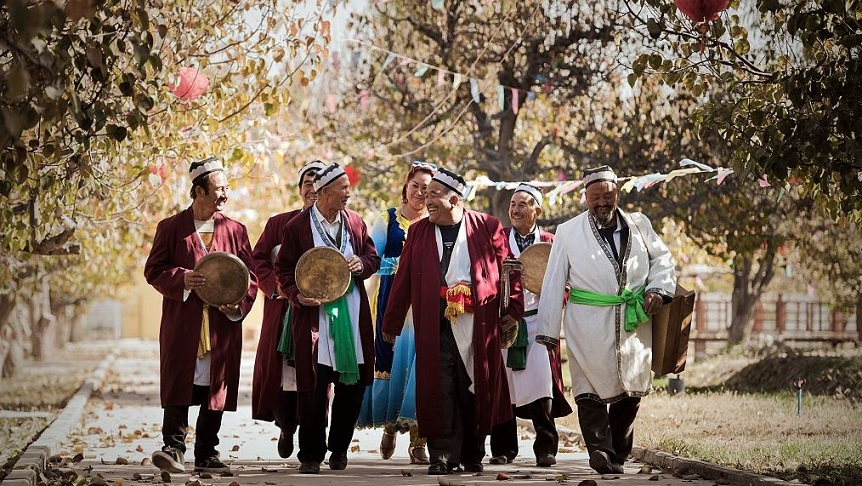
File: The Uygur people in the Xinjiang Uygur Autonomous Region. /CCTV
File: The Uygur people in the Xinjiang Uygur Autonomous Region. /CCTV
Spokesperson for the Chinese Embassy in Britain on Saturday denounced the groundless remarks made by the UK on China's Xinjiang Uygur Autonomous Region and Hong Kong Special Administrative Region (HKSAR), saying they have lodged solemn representations to the UK over the wrong remarks.
The remarks were made in response to UK Prime Minister Boris Johnson's Friday address at the Munich Security Conference where he claimed China "repressed" Uygur minorities in Xinjiang and called China's national security law for Hong Kong "repressive."
Repression in Xinjiang, 'lie of century'
The spokesperson refuted the so-called repression in Xinjiang as a "lie of century" fabricated by anti-China forces and pointed out that Xinjiang currently enjoys steady and sound social and economic development and increasingly stronger ethnic unity with equal rights and freedom granted to people of all ethnic groups.
According to the spokesperson, people's life in Xinjiang keeps improving and remarkable progress has been made in all aspects of the society.
In 2019, Xinjiang received over 200 million tourists. Official data showed that Xinjiang's Uygur population more than doubled in the past 40 years.
The spokesperson stressed that China will take necessary actions to defend its legitimate rights in response to the prime minister's statement which said the UK introduced restrictive measures to its companies doing business in Xinjiang.
Read more:
Fact Check: Lies on Xinjiang-related issues vs. the truth
National security law for Hong Kong, an institutional guarantee
The spokesperson further rejected as "totally groundless" the allegation which claims the implementation of the national security law in Hong Kong is a violation of treaty.
The law aims to fix loopholes that existed in Hong Kong's legal system and establish a sound legal and enforcement mechanism to uphold national security in Hong Kong, the spokesperson noted, adding the law also ensures the steady implementation of "One Country, Two Systems" and serves as a strong institutional guarantee for safeguarding residents' rights and freedom.
In the spokesperson's opinion, implementation of the security law help the city end chaos and restore order.
The law, adopted by Chinese lawmakers last June, clearly defines the duties of government bodies of the HKSAR for safeguarding national security and four categories of offences – secession, subversion, terrorist activities, and collusion with a foreign country or external elements to endanger national security – and their corresponding penalties.
UK is the one that violates the treaty
The spokesperson clarified that the UK is the one which violates its promise by declaring acceptance for citizenship applications from Hong Kong residents holding British National Overseas (BNO) passports.
In the memorandum exchanged with China before Hong Kong's return in 1997, the UK declared that it would not confer the right of abode in the United Kingdom on Chinese nationals in Hong Kong holding BNO passports, the spokesperson said, accusing the move a severe violation of basic norms governing international relations.
China has taken corresponding actions and reserves the right to take further actions, said the spokesperson.
China said in late January that it no longer recognizes the so-called the BNO passport as a travel document and ID document, which took effect from January 31.
Asserting that both Xinjiang and Hong Kong related issues are purely China's internal affairs, the spokesperson reiterated Beijing's unswerving commitment to defending national sovereignty, security and development interests.
China urges the British side to respect the fact and immediately stop interfering in China's internal affairs, said the spokesperson, warning that such interference may end up for the UK shooting itself in the foot.

